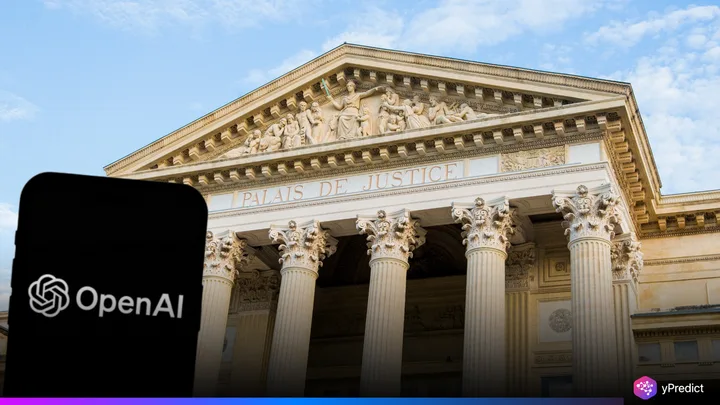
New legal documents have revealed that OpenAI and design firm io are quietly building their first AI hardware product. The details surfaced during a trademark lawsuit filed by iyO, a Google-backed startup that makes custom in-ear devices. As part of the case, OpenAI removed promotional materials tied to its $6.5 billion deal with io, founded by former Apple designer Jony Ive.
The case has uncovered confidential product plans and private meetings between the companies. OpenAI says it is fighting iyO’s claims of trademark infringement. But the filings suggest that OpenAI and io have spent the last year testing, researching, and debating what kind of AI device to launch. Despite rumors, it may not be headphones.
Research Drives OpenAI’s Next AI Product
The upcoming AI hardware device is being developed by OpenAI in partnership with io, the design firm led by Jony Ive. Legal declarations say the product will not be an in-ear or wearable device. Tang Tan, a former Apple executive now leading hardware at io, said the prototype shown in io’s launch video is still being finalized. The plan is to offer a new kind of product that sits between a phone and a laptop.
Sam Altman, OpenAI’s CEO, told staff the device would be pocketable and aware of its surroundings. In a court statement, Altman said, “Our intent is to create products that go beyond traditional interfaces.” Over the last year, the team has tested more than 30 audio devices. They also explored desktop and mobile forms. The research focused on how future AI tools could fit into everyday life.
Lawsuit Shows Confusion and Competition
OpenAI’s interest in in-ear products led it to iyO’s doorstep earlier this year. On May 1, OpenAI VP Peter Welinder and io’s Tang Tan met iyO CEO Jason Rugolo to test iyO’s product. The meeting took place in io’s San Francisco office. Follow-up emails revealed that the demo failed to impress. Still, internal emails show io staff considered iyO’s ear-mapping partner, The Ear Project, a valuable source for ergonomic data.
One io employee even suggested buying a scan database from them. Despite this, Tan said he avoided learning iyO’s IP and took the meeting only as a favor. Rugolo pushed to turn iyO’s device into a developer kit for OpenAI, and even offered to sell his company for $200 million. None of those offers were accepted. Evans Hankey, io’s chief product officer, said in court that io is not working on custom earpieces.
OpenAI’s Device May Still Be Far Off
OpenAI’s first AI hardware device is unlikely to launch this year. Court documents suggest the product is at least a year away from hitting the market. The prototype design remains in flux. Still, the filings show how seriously OpenAI is investing in its hardware ambitions.
The company’s legal team confirmed it has explored wireless, wired, desktop, and portable formats. That wide scope signals the company’s desire to find a new form factor for AI. With other firms like Meta and Apple working on AI-powered wearables, the race for the next breakthrough product is heating up.






